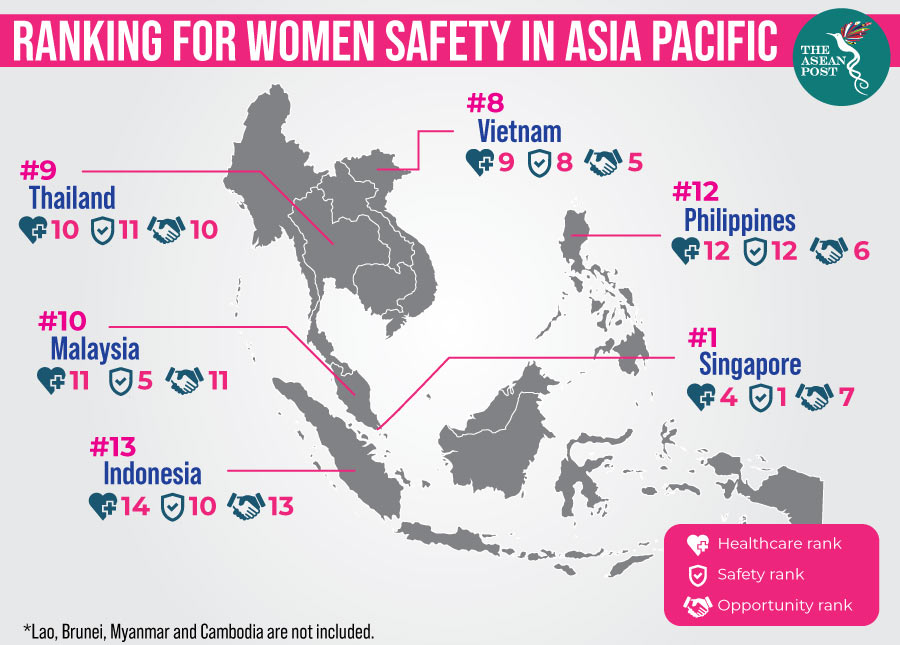In September last year, a mother of three was sentenced to six months’ jail and fined IDR500 million (US$34,000). The Indonesian Supreme Court in Jakarta had overturned a 2017 acquittal from a lower court and convicted Baiq Nuril Maknun of recording and spreading indecent material under the country’s electronic information and transactions law. What was Baiq actually doing with such a recording?
Based on her side of the story, Baiq, who worked as a teacher at a school in Mataram, said she recorded one of many telephone conversations she had with her boss, the headmaster, H Muslim. She wanted the recording as proof that she was being sexually harassed as, without proof, she feared reporting him would only result in her getting fired.
It must have come as much dismay to Baiq when, instead of just losing her job, the Indonesian courts decided that she should lose her freedom as well.
What was not surprising was that the case sparked criticism among activists and the public who argued that Baiq was a victim, and not a criminal.
“It appears a woman was criminalised simply for taking steps to redress the abuse she experienced,” said Usman Hamid, executive director of Amnesty Indonesia.
Her last hope, after exhausting all avenues of appeal to avoid prison, was a parliamentary pardon. Indonesian President Joko Widodo, who also expressed concerns about the woman's sentence, was expected to sign off on the pardon.
"The path is clear to grant Nuril an amnesty, and the President should act immediately," Amnesty International said in a statement.
"This would be a historic victory for victims of sexual abuse in Indonesia," it added, saying Maknun had suffered an "immense injustice".

Finally, on 25 July, Baiq won a parliamentary pardon. Loud applause broke out in the House of Representatives as lawmakers unanimously voted to quash the prison sentence handed to her over the recording.
A pardon
One of the definitions given by Merriam-Webster’s Dictionary for the word “pardon” is: excuse or forgiveness for a fault, offense, or discourtesy.
While the fact that Baiq has won her freedom is certainly something to celebrate – especially for women – in Indonesia, there is a certain degree of worry that must still accompany this celebration. The fact of the matter is that Baiq won her freedom on the back of a parliamentary pardon, meaning that she was “excused” or “forgiven” for her offence.
As established earlier, her offence was one under the country’s electronic information and transactions law. The reason she committed the offence in the first place was in order to obtain proof to her allegations.
Even with proof, prosecutors pushed the case to the point where Baiq may have very well been punished for the offence. Would it then be safe to assume that without proof, Baiq’s fears of losing her job would have been warranted?
In a largely conservative country like Indonesia, there is good reason why there is a clause in the country’s electronic information and transactions law that prohibits the recording and spreading of indecent material. Considering the number of dark cases involving such things as pornography and child abuse in the region, the clause is important even if Indonesia wasn’t as conservative as it is.
However, it is important to point out that one of the universal principles of the Rule of Law is that they must be just laws, meaning that they protect fundamental rights, including the security of persons and contract, property, and human rights. In this particular case, Indonesia’s electronic information and transactions law would have done Baiq a gross injustice were it not for the intervention of Parliament.
Baiq’s story may have had a happy ending, but Indonesia must do more to ensure that its women do not continue to fear reporting the sexual harassment they may face in and out of their workplace. Whether that means improving the judicial system, amending or removing certain laws, or introducing new ones, Indonesia must act quickly. Otherwise, there may be more victims like Baiq in the future who hope in vain that their country’s laws would protect them instead of hurting them further.
How many more of them is Indonesia’s Parliament ready to pardon?
Related articles:
